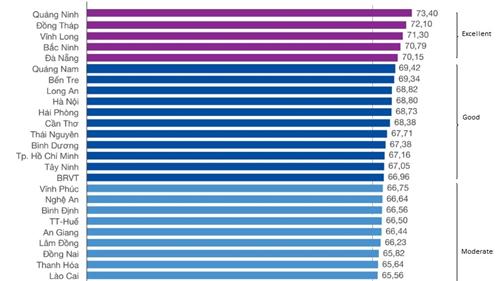Brits tackle rising startup economy across Vietnam
Brits tackle rising startup economy across Vietnam
Vietnam is becoming a prospective hub for British startups, with the country strengthening its position on the global technology scene amid the recent boom in the startup community. Natalie Black, Her Majesty’s Trade Commissioner for Asia-Pacific at the United Kingdom's Department for International Trade, told VIR’s Thanh Van about the trend of the British startup community in Vietnam.

Natalie Black, Her Majesty’s Trade Commissioner for Asia-Pacific at the United Kingdom's Department for International Trade
|
What is the current trend of British startups in Vietnam, and what are the sectors of most potential for them?
In Vietnam, growth opportunities for startups in AI, fintech, and cybersecurity align well with the UK’s growth drivers and proven strengths in these areas. These opportunities could see mutually beneficial growth for both the local ecosystem as well as UK startups in Vietnam.
While Vietnam’s infrastructure for AI is still in its early stages, both the private and public sectors are rapidly exploring practical related applications, while fintech remains a pillar of the local digital economy and offers great opportunities. Vietnam’s emerging digital economy has led to an increasing demand for cybersecurity, particularly in the financial and public sectors.
Given that Vietnam’s technology industry is in the early stages of development, what factors make Vietnam an attractive destination for British startups in particular?
Vietnam’s booming internet economy is driven by a young, educated, tech-savvy population and the country sees high smartphone adoption and internet penetration. The country also offers a large pool of affordable and skilled talent.
The government provides strong support for the country’s innovative startup ecosystem to foster a new wave of entrepreneurs and opportunities, with initiatives such as Project 844 aimed at promoting a favourable environment for growth and international collaboration.
Meanwhile, funding for startups is becoming more accessible. Within the startup realm, Vietnam’s fintech groups are gaining significant traction as the sector received an influx of foreign investment last year, ranking it second in Southeast Asia.
The UK government recently announced a £1.25 billion ($1.56 billion) support package to help British startups weather the coronavirus pandemic. How will this help expand their businesses to overseas markets like Vietnam?
In times like this, the world needs innovative companies more than ever, with the tech sector in particular having a key role to play in the global recovery from COVID-19.
The package announced by the UK government enables British tech startups to access the capital they need to continue developing and innovating through the crisis, creating the services and products of the future.
This will ensure the UK remains a world leader in innovation, and the tech and creative capital of Europe, with more than twice the total number of $1 billion tech companies produced than any other country in Europe since 2014.
Many UK tech businesses are already noticing the amazing growth in Southeast Asia’s internet economy, which has more than tripled in size over the last four years. The 40 per cent growth rate of Vietnam’s internet economy demonstrates the exciting future for tech, innovation, and entrepreneurship in the country.
In addition, the UK’s Future Fund will ensure British tech businesses are able to continue to grow internationally, into exciting markets such as Vietnam and across the whole of Southeast Asia.
























